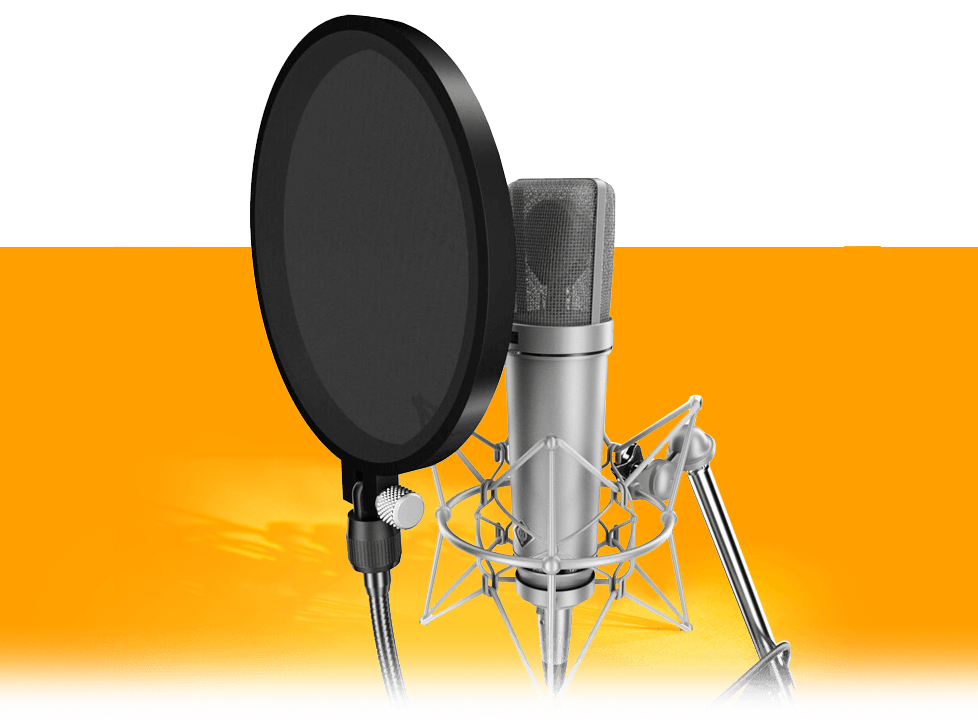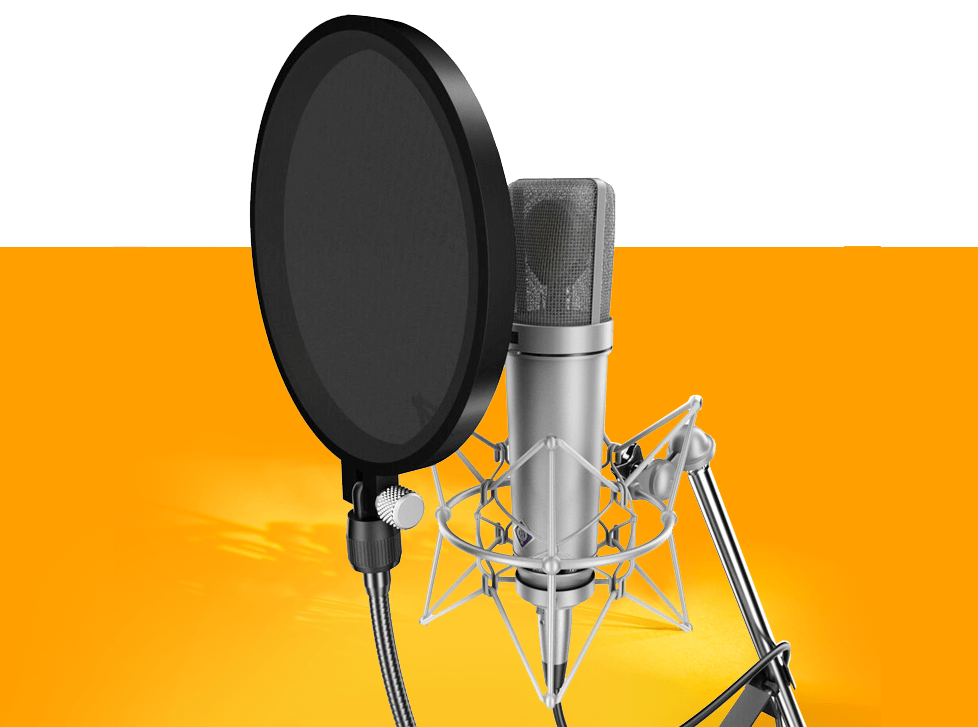20 Audio Careers in Film and TV
Jeremy Alves | January 25, 2019
You did it. You’ve completed the first step towards building a stable career and got the education or experience needed to put you on the path towards becoming a successful audio engineer! Now you need a job!
The film and television industries can be fickle and difficult to break into, but once you’re in you have the opportunity to gain valuable experience and grow with your career. It can be overwhelming when you think about where to begin, so to save you some of the stress, here are 20 audio careers you could potentially go after in the film and TV industry.
1. Production Assistant
The production assistant is responsible for providing support to producers and associate producers. Some of your responsibilities may include prepping the sound equipment, assisting with editing the audio, and supporting the producers in any way that they need. This is a great job to get in on the starting floor, and will hopefully allow you to work your way up the food chain.
2. Sound Designer
A sound designer has a unique and interesting job, which is to create audio environments that enrich the content and heighten the audience’s experience. This includes creating environmental sound effects such as explosions, cars or gunshots, and editing sound effects and music. The sound designer has a sound effects library to work with, but it also responsible for creating sounds when needed. For example, it would be the sound designer’s job to build sounds for creatures in movies that don’t actually exist.
3. Sound Editor
The sound editor is responsible for editing all audio content. Sound editing often includes removing undesirable sounds from the content such as dead air, stutters, umms, and any other audio mistakes, balancing levels, tightening the narrative by cutting what doesn’t work or add to the content, and exporting finished audio when it’s ready to go.
4. Music Editor
The music editor is responsible for working out placement of music in a particular scene, as well as adjusting any music edits. The music editor works closely with the composer and the re-recording mixer to make sure that the music is the best it can be.
5. Re-recording Mixer
Re-recording mixers are responsible for combining all of the audio elements, including dialog, voice over, foley and music, into one final project. The mixers are responsible for adjusting sound levels and making sure that all of the audio elements come together perfectly.
6. Dialog Editor
A dialog editor’s job is to focus specifically on the words being spoken in a particular scene or clip. The dialog editor removes undesirable sounds such as dead air, umms, and unwanted background noise when possible, but also listens to the microphones to check the quality of the sound. They are responsible for fixing any technical problems and making sure transitions are seamless and smooth.
7. Sound Supervisors
This is a very demanding leadership role that involves communicating directly with directors, producers and picture editors about everything related to sound. The sound supervisor is also responsible for overseeing the entire sound crew while they work on a particular project.
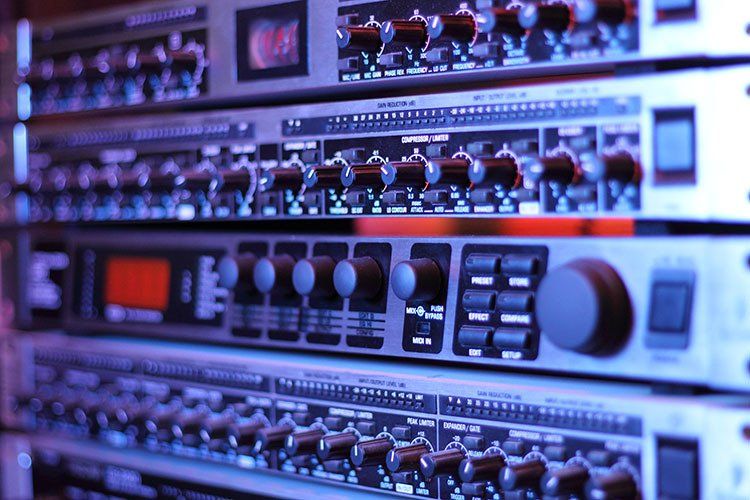
8. Foley Artist
Foley artists are responsible for creating all non-speaking sounds that the sound designer wouldn’t create themselves. This includes a lot of random everyday noises such as footsteps, kissing, eating, touching and handling objects. The Foley artist makes these noises using various objects that best simulate a certain sound.
9. Foley Mixer
Working with the foley artist, the foley mixer is responsible for capturing and recording the sounds that the foley artist creates.
10. ADR Mixer
An ADR mixer is responsible for recording the actors in a studio. Actors read lines off of a screen and the ADR mixer adjusts microphone sound and makes sure that the sound being recorded matches the lip movements on screen. The ADR mixer is also responsible for capturing sound that would be used in animated films.
11. Recording Assistant
The recording assistant is responsible for setting up instruments or equipment, as well as signal inputs and any tech needed to start the recording process. They do this so that when the recording engineer comes in, they are ready to get to work.
12. Boom Operator
Boom operators assist the sound mixer by holding and operating the boom microphone, which is a microphone that’s attached to a long pole so that it can be positioned to capture dialogue from the actors, as well as other sounds on set.
13. Production Sound Mixer
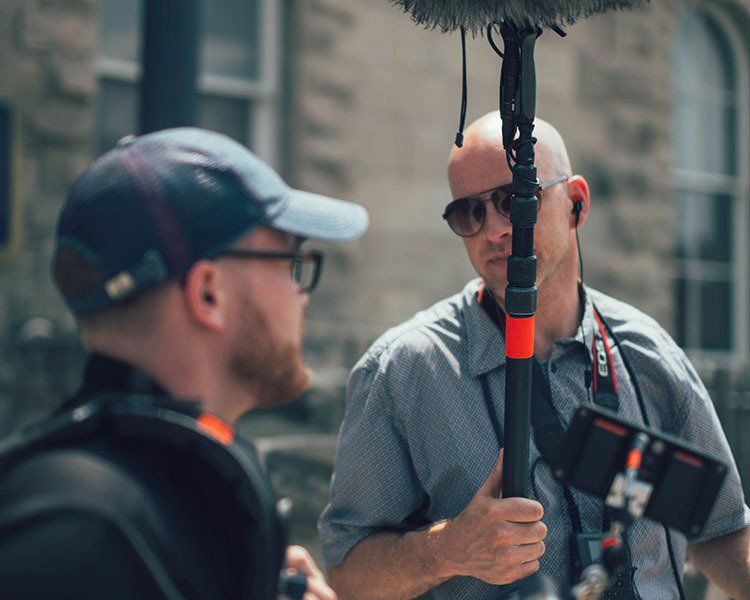
The sound mixer has one of the most important and demanding jobs on set. Not only are they often brought in during pre-production to help choose which microphones and equipment will be used, but they are also responsible for recording all sound on set. The sound mixer is also tasked with maintaining log sheets for each roll of tape, and taking script notes in case a scene needs to be re-shot.
14. Sound Assistant
The sound assistant works directly under the production sound mixer and boom operator to support the entire sound department and make sure that the recording equipment is well-maintained.
15. Composer
Composers are responsible for creating sound experiences that heighten and elevate the film. Their music is meant to convey emotion and make the audience feel sad, angry, scared, tense or excited at any given moment. A composer does the majority of their work alone, without a team surrounding them. Once they’ve finished creating a piece of work, other people such as recording artists and musicians are brought in to help bring it to life.
16. Musical Director
The musical director is responsible for the vocal and instrumental elements of a film. It is the musical director’s job to teach the cast and crew the music and to work with them during rehearsals. This position may be be more commonly seen working on a musical film or show, but is also an integral part of a non-musical production, as they are responsible for working with the band or orchestra, which creates the film’s score.
17. Post-Production Supervisor
The post-production supervisor is responsible for overseeing all aspects of the post-production process. This includes monitoring the work of the sound team and picture editing team, overseeing reshoots and ensuring delivery to distributors.
18. Voice-Casting Director
The principal job of the voice-casting director is to audition voice-over actors for animated films and television shows. The voice-casting director works closely with the film’s director to help make final decisions about who will voice each character.
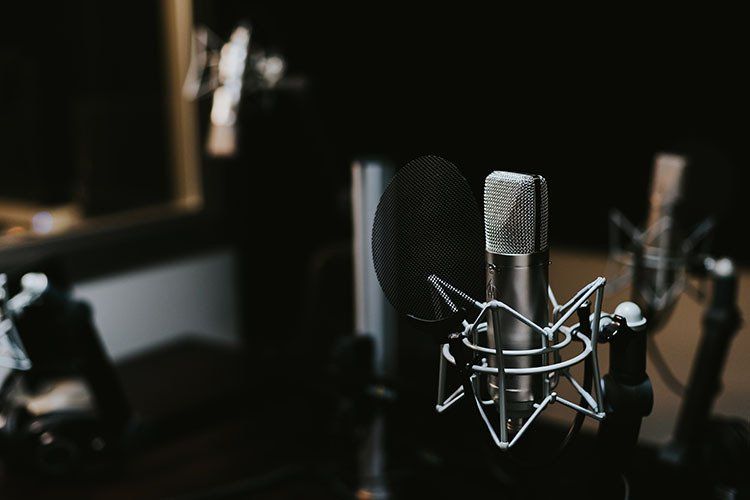
19. Soundtrack Engineer
The soundtrack engineer is responsible for producing a recording or live performance. The soundtrack engineer balances and adjusts sound using audio effects, mixing, as well as many other sound techniques. The recordings produced can than be used for film and television soundtracks.
20. Musicologist
Musicologists often work on a freelance basis and are hired to provide research and opinion assistance to film and television production companies. A musicologist will often consult on matters of originality and copyright, as it pertains to the music used in the film. They can also act as witnesses in sound-alike or copyright-infringement lawsuits.
Ready to Start?
OIART's Audio Program Includes:
✓ Small Class Sizes
✓ On Site Facilities
✓ Industry Leading Instructors
✓ Post Grad Support & Guidance
✓ Exclusive 11 Month Program
Top Reasons Why You Should Choose OIART.
Have Questions?
If you have questions about our audio engineering and music production program or would like to book a tour, we would be pleased to speak with you.
Text Us: 519.200.4151
Share This With a Fellow Music Lover
Apply in 4 Steps!
Step 1: Click apply now.
Step 2: Answer 8 questions about yourself.
Step 3: Upload supporting documents.
Step 4: That's it! You are done.
Share this with fellow music lovers

